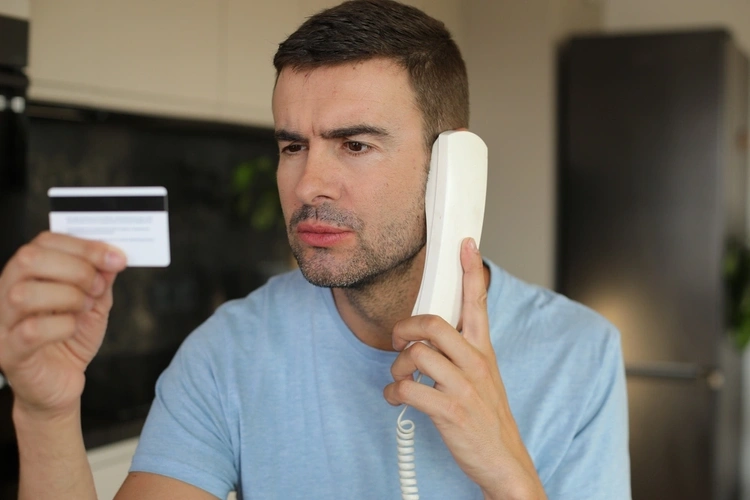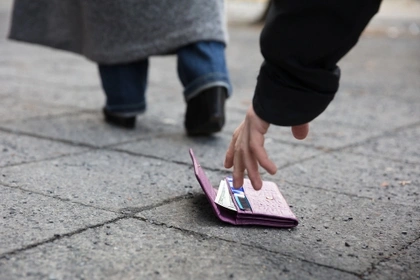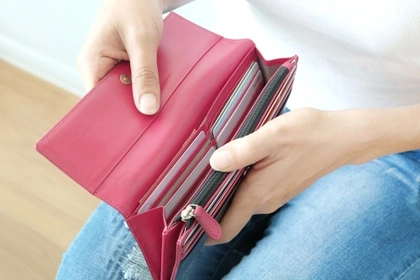Why would you cancel a credit card?
-
Reduce spending temptations – With fewer cards, it’s easier to stick to a budget.
-
Lower fraud risk – Unused cards can sometimes be targeted for fraud, so cancelling them can offer peace of mind.
-
Streamline finances – Having fewer cards can simplify your budget and make it easier to keep track of what you spend.
Steps to cancelling a credit card
1. Check your balance
Before cancelling, check that your balance is fully paid off. Accounts can’t close with unpaid balances.
2. Contact your provider
Some providers let you cancel online, but you’ll still need to clear any outstanding balance first.
3. Double-check any recurring payments
Make sure you’ve switched any regular payments (like subscriptions or bills) to a different account to avoid interruptions.
4. Keep an eye on your account
It can take a few days for your card to officially close. Check your final statement to confirm there’s no remaining balance or pending charge.
Can you cancel a credit card online?
Yes, some providers let you cancel your card online. Bear in mind that whether you cancel online or over the phone, you’ll still need to clear your balance.
Online cancellations can be convenient, but calling will mean you’ll know then and there if your card has been cancelled successfully.
Paying off balances with another card
If you have a balance on the card you want to cancel, a balance transfer card could make it easier to pay it off. Here’s how it works:
-
Look for a 0% interest offer – Many balance transfer cards offer 0% interest for an introductory period, which can save you money on interest and help you pay down the debt faster.
-
Check for limits and fees – Balance transfer cards typically have transfer limits and may charge fees. Review these carefully to ensure it’s a cost-effective option for your needs.
-
Transfer your debt to a new card - Once you've chosen a balance transfer card, apply for it and, if approved, request the transfer. The provider will move the balance from your old card to the new one.
A balance transfer card can be a practical solution if you’re ready to cancel but need to manage an outstanding balance first.
Ocean Credit Card
See if it's a YES before you apply
- Up to £8,000 credit limit
- Checking won't affect your credit score
- Get a response in 60 seconds
Intelligent Lending Ltd (credit broker). Capital One is the exclusive lender.

Should you cancel an unused credit card?
Deciding to cancel an unused credit card isn’t always straightforward. Here are the main pros and cons to consider:
Pros
-
Reduce debt risk – Having fewer credit cards may help if you tend to overspend.
-
Fraud protection – Reduce the chances of fraud on a card you’re not regularly monitoring.
Cons
-
Impact on your credit score – Cancelling a card can impact your credit utilisation ratio, which may lower your score.
-
Loss of backup credit – An unused card could be helpful for emergencies if your primary card has an issue.
-
Possible wait for new offers – Some providers require a waiting period to qualify for new customer offers.
How will cancelling a credit card affect my credit score?
Cancelling can affect your credit score in two main ways:
-
Credit utilisation ratio – Lenders like to see a low ratio, typically between 25%–30%. Cancelling a card reduces your overall available credit, which can raise your utilisation ratio if you carry a balance elsewhere.
-
Length of credit history – Keeping older cards open helps build a long, stable credit history, which can be beneficial to your score.
Tip: If you’re aiming to maintain your credit score, try to avoid cancelling older cards, as they help build a longer credit history.
What happens when your credit card expires?
When your card expires, don’t worry – as long as your account is in good standing, your provider will automatically send you a new one. At this point, you can decide if you want to keep it or cancel. If you still owe a balance on an expired card, you still have to pay it off before cancelling.
How long should I wait to cancel a credit card?
You can cancel a credit card any time you like if you've cleared the balance. If you’re working on improving your credit score, it’s generally a good idea to keep the card active for at least six months and use it responsibly.
Disclaimer: We make every effort to ensure content is correct when published. Information on this website doesn't constitute financial advice, and we aren't responsible for the content of any external sites.






